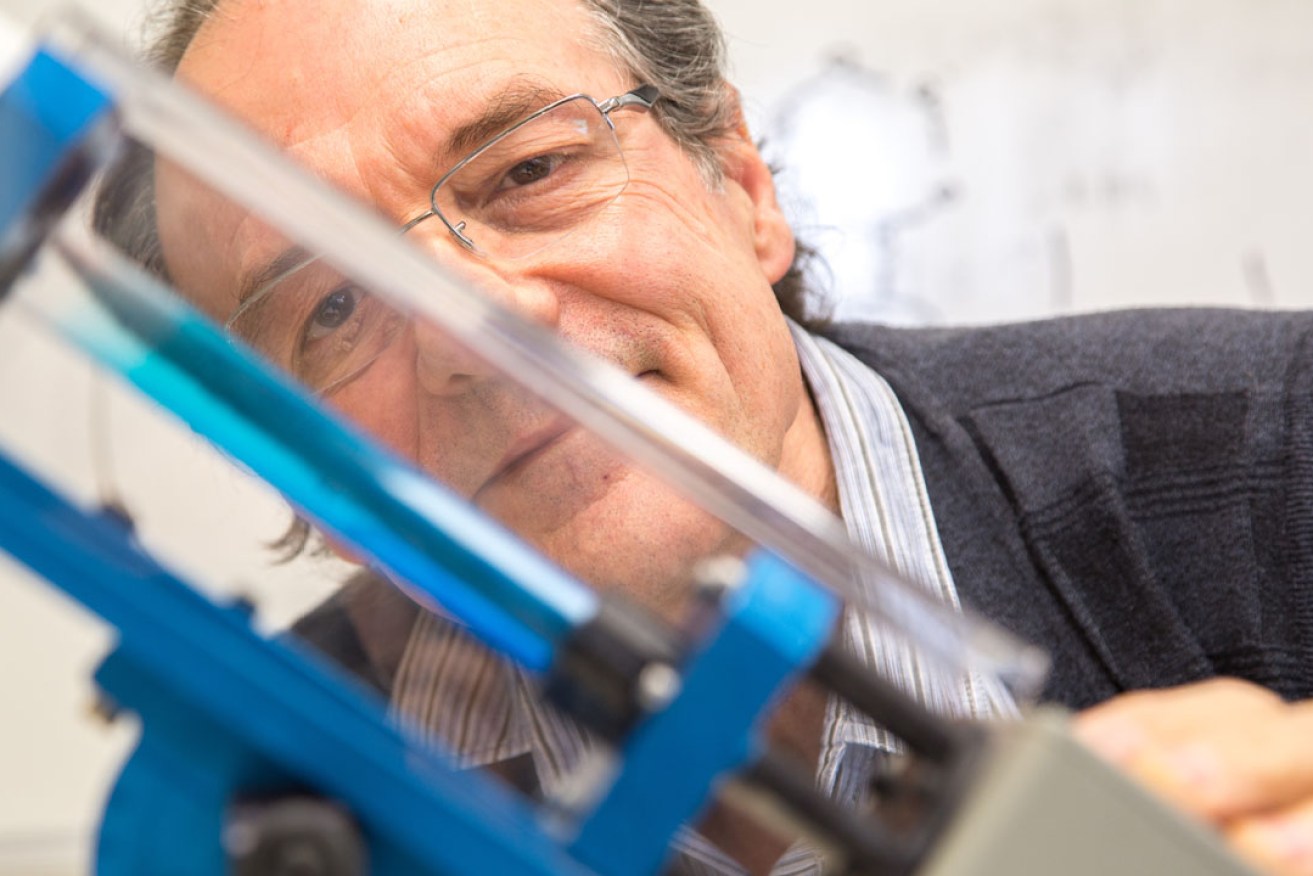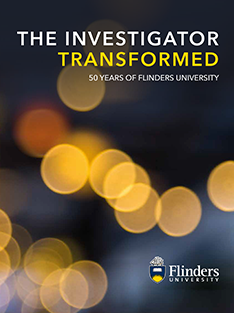Whirlwind invention promises some big spinoffs for SA
A South Australian laboratory instrument which rotates at a ‘ridiculous’ rate is spinning out a range of potentially lucrative inventions at Flinders University.

The rapidly revolving Vortex Fluidic Device, designed by Professor Colin Raston and built at Flinders University, has been used in a wide range of pioneering diverse applications in chemical transformation at Flinders and other universities around the world, spawning a number of key patents for wider developments.
Just this year, the device has been used to slice carbon nanotubes and to demonstrate its ability to produce more effective and environmentally sustainable new nano-materials, drugs, biofuels and other chemical processes.
Already about 30 potential investors are looking at the latest carbon nanotube research findings, says Professor Raston.
“This year we’ve published 15 papers for different applications, from carbon nanotube technologies, to protein, plasma and enzyme mobilisation and assembly and synthesis of organic drug compounds,” he says.
Professor Raston’s laboratory at Flinders University is full of equipment and an assemblage of staff and students capable of delivering scientific advancements truly deserving of repeated “breakthrough” tags.
“I thought, chemists can’t just keep doing what we are doing, creating toxic outputs and waste on a huge scale. I started writing some articles about green chemistry and next thing I was representing Australia in international initiatives on green chemistry overseas,” Professor Raston says in the Flinders 50th Anniversary publication, The Investigator Transformed.
“I want to put green chemistry into every-day use, so we can work out how to make things with fewer toxic reagents. That’s one of the applications that this device will have, which is pretty exciting.
“We need to be benign by design.”
The Vortex Fluidic Device holds a tube of variable size that spins at “ridiculously high speed” set a varied angles. It has proved instrumental in refining chemicals at a molecular level in totally new ways.
One of the first applications for the device was to unfold the proteins in egg whites, earning Professor Raston international fame and an Ig Nobel Prize last year for ‘unboiling an egg’ by refolding the egg’s proteins into the state found prior to cooking.
Since then, the applications have been many.
Still more scientific papers from his team at Flinders and other university collaborators have been accepted for publication in 2017. They build on applications explored in the past two years.
Flinders Partners, the commercialisation arm of Flinders, is working with the South Australian Premier’s Professorial Research Fellow to negotiate more industry partnerships and to establish new spinout companies from the research.
“In the US, they take green chemistry seriously because it makes a lot of money,” says Professor Raston, a former president of the Royal Australian Chemistry Institute.
“If you have a process that reduces waste and reduces resource use, then instead of investing huge resources into fighting environmental regulation, companies, the community and the environment all get a much better result.”
 An extensive collection of profiles on Flinders University leaders, students, graduates, researchers, academics and supporters can be viewed online at the Flinders 50th Anniversary website here.
An extensive collection of profiles on Flinders University leaders, students, graduates, researchers, academics and supporters can be viewed online at the Flinders 50th Anniversary website here.
The souvenir picture book, The Investigator Transformed, can be purchased via the Flinders 50th Anniversary website.





